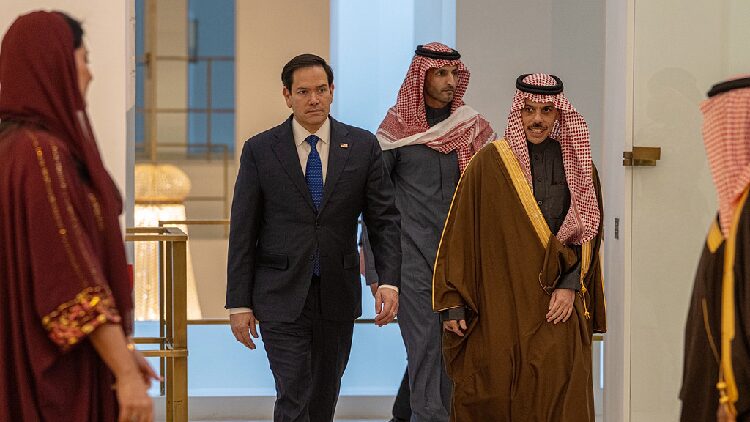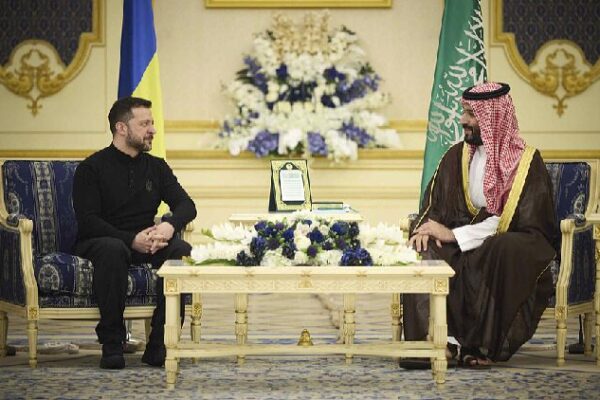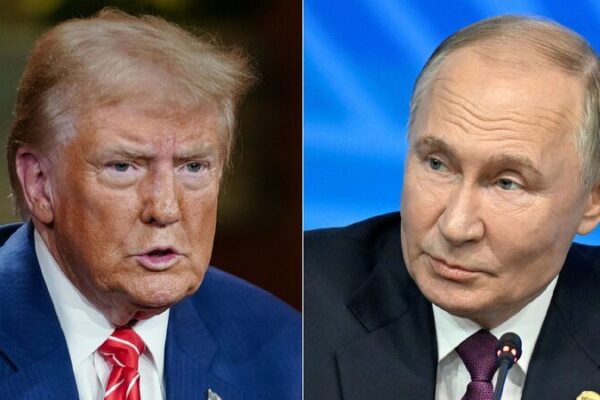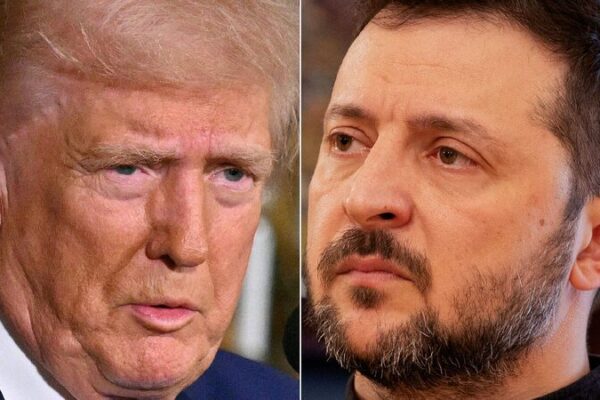The United States and Russia are set to begin peace talks on the Ukraine crisis in Riyadh on Tuesday, but key players—Ukraine and European nations—have been left out of the negotiations. The exclusion has raised concerns among Ukrainian officials and European leaders about the potential outcomes of the discussions.
High-Level Talks Without Key Stakeholders
U.S. Secretary of State Marco Rubio arrived in Saudi Arabia’s capital on Monday, accompanied by U.S. Middle East Special Envoy Steve Witkoff and National Security Advisor Mike Waltz. Russian Foreign Minister Sergey Lavrov and Presidential Assistant Yuri Ushakov will represent Russia in the talks.
Despite being at the center of the conflict, Ukraine will not participate in the discussions. Ukrainian President Volodymyr Zelenskyy announced on Monday that Ukraine will not accept any outcomes from talks that exclude his country. “We cannot accept decisions made without our involvement,” Zelenskyy stated.
Ukraine’s Concerns and European Reaction
Currently visiting the United Arab Emirates, Zelenskyy is scheduled to visit Saudi Arabia shortly. He emphasized that his visit is unrelated to the U.S.-Russia talks but mentioned he would seek updates through Saudi officials.
European leaders, worried about being sidelined, have taken swift action. French President Emmanuel Macron convened an emergency meeting in Paris with leaders from NATO, the European Commission, and key European nations, including Germany, Britain, Poland, Spain, Italy, Denmark, and the Netherlands. The goal: to coordinate a unified European response ahead of the U.S.-Russia negotiations.
Calls for Inclusive Peace Efforts
After the meeting, Macron held discussions with U.S. President Donald Trump and President Zelenskyy. He later tweeted that Europe seeks a “strong and lasting peace” for Ukraine, one that provides “strong and credible security guarantees” for the Ukrainian people.
German Chancellor Olaf Scholz reaffirmed Germany’s support for Ukraine, stating that Ukraine should not be forced to accept “everything that is presented to it under any conditions.” He stressed the importance of unity between U.S. and European allies in ensuring European security. “There must be no division of security and responsibility between Europe and the United States,” Scholz emphasized. “NATO is based on the principle of always acting together and sharing the risks. This must not be called into question.”
UK Prime Minister Keir Starmer, speaking outside the summit in Paris, called the future of Ukraine an “existential issue” for Europe. He hinted that Britain might consider deploying forces to Ukraine if a lasting peace agreement is reached. However, Chancellor Scholz deemed the idea of sending European ground troops “totally premature,” although he confirmed that European nations are prepared to allocate “at least two percent” of their GDP to bolster defense.
Expert Insights on the Conflict
Chen Yu, deputy director of the Eurasian Institute at the China Institute of Contemporary International Relations, commented that Europe views Ukraine as a core interest. “Europeans are worried that the current U.S.-Russia approach, bypassing Europe, could undermine European interests and lead to a peace solution that sacrifices the concerns of Ukraine and Europe,” Chen said. He added that Europe fears this could result in an expansion of Russian influence in the West.
Chen explained that while Europe is pushing to play a more significant role in resolving the conflict, internal divisions remain. “There are significant differences within Europe regarding security guarantees for Ukraine and the potential for troop deployment after a ceasefire,” he noted. “The situation remains complex, and it requires ongoing observation as events unfold.”
The Road Ahead
As the U.S. and Russia prepare to negotiate without Ukraine and Europe at the table, the future of the conflict remains uncertain. The exclusion of key stakeholders raises questions about the legitimacy and effectiveness of any agreements reached. For the people of Ukraine and the broader European community, the hope is for a peace process that includes all voices and addresses the critical issues at hand.
Reference(s):
U.S.-Russia peace talks omit key players: Ukraine and Europe
cgtn.com








